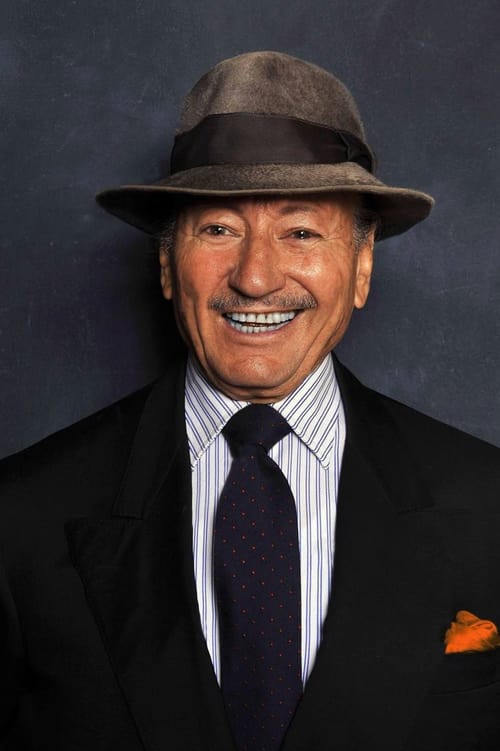
Mohammed Lakhdar-Hamina
Nascimento : 1934-02-26, M'sila, Algeria
História
Mohammed Lakhdar-Hamina (born in M'sila in 1934) is an Algerian film director and screenwriter. He is best known for his 1975 film Chronicle of the Years of Fire. He is one of the most prominent figures in contemporary Arabic cinema.
Born in 1934 at M'Sila, Algeria, Lakhdar began his studies in his native country. He first became interested in the world of cinema at the Lycée Carnot in Cannes, France. After beginning studies of agriculture and law at French universities, he deserted the French Army in 1958 and joined the anti-French Algerian Resistance in Tunisia, where he worked for the provisional Algerian government in exile. His film career began as he joined the Algerian Maquis (guerrillas).
In 1959, the Algerian National Liberation Front (FLN) sent him to Prague, where he pursued his cinematography studies at the cinema school, Film and TV School of the Academy of Performing Arts in Prague, the Czech academy for cinema and television. However, he quit his studies in order to work for the Barrandov Studios. In 1960 he joined the Service Cinema, created by the Algerian government in exile. In 1959, the Algerian ministry of information in exile commissioned Lakhdar-Hamina, together with Djamel Chanderli and Pierre Chaulet, to produce a movie about Algeria's predicament under French colonialism. The documentary film, titled Djazzaïrouna (Our Algeria), aimed at portraying the goals pursued by the Algerian nationalist guerrilla movement, the Maquis.
In 1961, Lakhdar-Hamina collaborated with Chanderli in the movie Yasmina, which tells the story of a refugee girl who must flee her village following its destruction. Lakhdar-Hamina collaborated again with Chanderli in the 1962 The people's voice and 1961 The guns of freedom. Upon Algerian independence in 1962, he returned to his homeland where, together with his colleagues from Tunisian exile, he founded the Office des actualités algériennes, of which he was director from 1963 until its dissolution in 1974.
From 1981 until 1984 he acted as director of the Office National pour le Commerce et l'Industrie Cinématographique, the most important institution for furtherance of the French film industry. One of his most recent films, The last image, was part of the Official Selection at Cannes Film Festival in 1986 and was nominated for the Golden Palm.
Lakhdar-Hamina's son, Malik Lakhdar-Hamina, became well known after the release of his first long film, Autumn: October in Algiers (1992), a film that explores the riots of October 1988 through the microcosm of an Algerian family split by a Westernized versus Islamicized view of contemporary Algeria. His other son, Tariq Lakhdar-Hamina, is a film producer.
From its inception, Algerian cinema was intertwined with the ideological and existential debates that surrounded the Algerian war of independence and the postcolonial nation-building stage.
In this context, Lakhdar-Hamina's cinematographic career has significantly contributed to the development of a new filmic language characteristic of contemporary Maghrebi cinema in general and Algerian in particular, notably distinct from the filmic experiences of other Arab countries and most particularly of the Egyptian cinematic industry. ...
Source: Article "Mohammed Lakhdar-Hamina" from Wikipedia in English, licensed under CC-BY-SA 3.0.
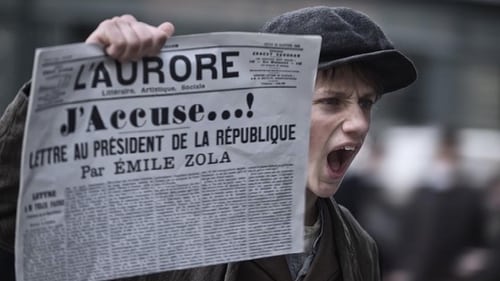
Bachir
Paris, final do século 19. O capitão francês Alfred Dreyfus é um dos poucos judeus que faz parte do exército. No dia 22 de dezembro de 1884, seus inimigos alcançam seu objetivo: conseguem fazer com que Dreyfus seja acusado de alta traição. Pelo crime, julgado à portas fechadas, o capitão é sentenciado à prisão perpétua no exílio. Intrigado com a evolução do caso, o investigador Picquart decide seguir as pistas para desvendar o mistério por trás da condenação de Dreyfus.

Director
The film is set against the backdrop of the Algerian War. A determined French commander, who believes Algeria belongs to France, must deal with a soldier who rebels when asked to execute an Algerian freedom fighter. The finale is set in the blistering desert as the soldier seeks to escape

Writer
Seen through the filtered lens of boyhood memories, award-winning director Mohamed Lakhdar-Hamina crafted this half-fictional, half-autobiographical account of a brief period in the history of an Algerian village. It is 1940, and the quiet town is ruled by French colonialists appointed by the Vichy government. Algerians are being called up for service in the Vichy military, and Jews in the village are in danger of deportation. A beautiful young schoolteacher named Claire Boyer (Veronique Jannot) arrives in town and turns every male head within miles, including 14-year-old Mouloud (Merwan Lakhdar-Hamina, the director's son). Simon Attal (Michel Boujenah), a fellow teacher and a Jew, is also attracted to Claire, and so is Mouloud's older brother. Suddenly two murders occur in the village, Simon is in danger of being deported, and the tone shifts from the dreams of boyhood to the realities of manhood.

Director
Seen through the filtered lens of boyhood memories, award-winning director Mohamed Lakhdar-Hamina crafted this half-fictional, half-autobiographical account of a brief period in the history of an Algerian village. It is 1940, and the quiet town is ruled by French colonialists appointed by the Vichy government. Algerians are being called up for service in the Vichy military, and Jews in the village are in danger of deportation. A beautiful young schoolteacher named Claire Boyer (Veronique Jannot) arrives in town and turns every male head within miles, including 14-year-old Mouloud (Merwan Lakhdar-Hamina, the director's son). Simon Attal (Michel Boujenah), a fellow teacher and a Jew, is also attracted to Claire, and so is Mouloud's older brother. Suddenly two murders occur in the village, Simon is in danger of being deported, and the tone shifts from the dreams of boyhood to the realities of manhood.
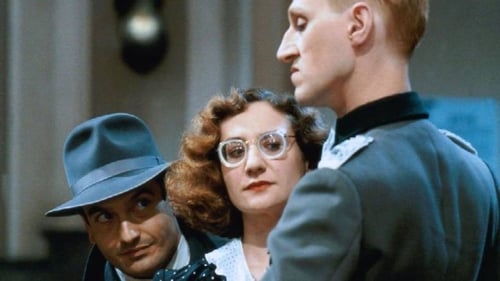
Producer
50 anos de história de um salão de baile na França, a partir da década de 1920. As pessoas que vão lá são sempre as mesmas, até mesmo os músicos. Você pode ver todo o tipo de pessoas dançando todas as danças da moda (dependendo da idade).
1983: as mulheres chegam a um salão de dança uma de cada vez. Os homens entram e então casais dançam, suas personalidades em exposição. Com os dançarinos mudando de personagem, o filme viaja no tempo. Em 1936, a Frente Popular dá energia à classe operária. Em 1940, nas vésperas da ocupação alemã, um casal rico e miserável ganha o seu merecidamente. Em 1944, quando Paris é libertada, um oficial alemão e um colaborador são rejeitados enquanto um combatente da Resistência recebe boas-vindas de herói. 1946: soldados americanos trazem meias de seda e jazz. Em 1956, o rock and roll empurra de lado o samba; policiais buscam um estrangeiro. 1968: os radicais estudantis assumem o salão de dança abandonado. Em 1983, é uma discoteca. E a noite termina.
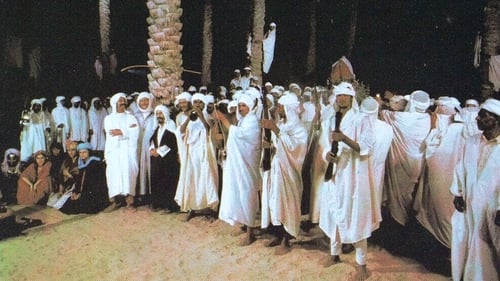
Writer
Seen right through the sandstorms that rack the lives of a tribe living on a desert oasis, is a subtle and not-so-subtle mistreatment of the female members of the tribe - tribal chiefs have the right to be the first to deflower virgins, and single or widowed mothers must walk a narrow line of behavior restrictions that do not apply to their male counterparts. Both genders, however, fight the brunt of the harsh desert winds together.

Director
Seen right through the sandstorms that rack the lives of a tribe living on a desert oasis, is a subtle and not-so-subtle mistreatment of the female members of the tribe - tribal chiefs have the right to be the first to deflower virgins, and single or widowed mothers must walk a narrow line of behavior restrictions that do not apply to their male counterparts. Both genders, however, fight the brunt of the harsh desert winds together.

Producer
Depois de passar doze anos na prisão, o ativista político Ali volta para casa. Sua família espera ansiosamente por ele, com esperança de que os vá salvar da tirania de seu irmão mais velho, Tolba. Porém, eles logo percebem que a moral e o idealismo de Ali deram lugar à conformidade e apatia.
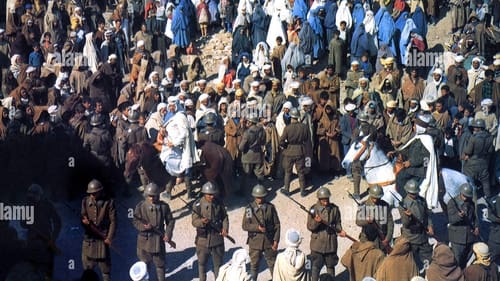
Camera Operator
Vencedor do prestigiado Palma de Ouro no Festival de Cannes em 1975, “Chronique Des Années De Braise” retrata a luta da Argélia pela independência do domínio colonial francês. A história segue a migração de um camponês de sua aldeia devastada pela seca à sua eventual participação com o movimento de resistência argelina, pouco antes da eclosão da Guerra de Independência da Argélia.

Producer
Vencedor do prestigiado Palma de Ouro no Festival de Cannes em 1975, “Chronique Des Années De Braise” retrata a luta da Argélia pela independência do domínio colonial francês. A história segue a migração de um camponês de sua aldeia devastada pela seca à sua eventual participação com o movimento de resistência argelina, pouco antes da eclosão da Guerra de Independência da Argélia.

Writer
Vencedor do prestigiado Palma de Ouro no Festival de Cannes em 1975, “Chronique Des Années De Braise” retrata a luta da Argélia pela independência do domínio colonial francês. A história segue a migração de um camponês de sua aldeia devastada pela seca à sua eventual participação com o movimento de resistência argelina, pouco antes da eclosão da Guerra de Independência da Argélia.

Le conteur fou
Vencedor do prestigiado Palma de Ouro no Festival de Cannes em 1975, “Chronique Des Années De Braise” retrata a luta da Argélia pela independência do domínio colonial francês. A história segue a migração de um camponês de sua aldeia devastada pela seca à sua eventual participação com o movimento de resistência argelina, pouco antes da eclosão da Guerra de Independência da Argélia.

Director
Vencedor do prestigiado Palma de Ouro no Festival de Cannes em 1975, “Chronique Des Années De Braise” retrata a luta da Argélia pela independência do domínio colonial francês. A história segue a migração de um camponês de sua aldeia devastada pela seca à sua eventual participação com o movimento de resistência argelina, pouco antes da eclosão da Guerra de Independência da Argélia.

Director
During the Algerian war of independence, one of the FLN's leaders was arrested by the army, which uses the most violent methods to make the prisoners talk. The use of torture poses a case of conscience to a French officer. A play between the field against the field, between the tortured and his torturer, behind a stifling closed door.
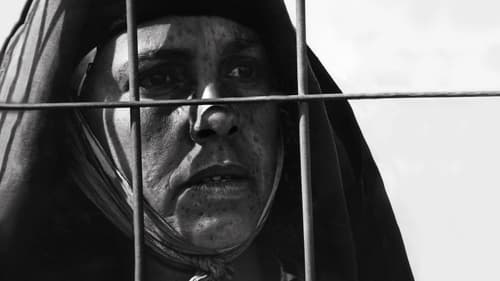
Camera Operator
This black-and-white film – the first road movie of Algerian cinema – presents one of the most readily apparent, though subtle, transformations of the daily life of the people of Algeria brought about by the ordeal of French occupation and the war of liberation. With military repression in full force, a peasant woman finds herself alone in her house in the mountains when her only son is taken away by French soldiers soon after her husband is killed in a raid. One day, on seeing a dead chicken, which she considers a bad omen, she decides to leave home, and sets off on a tiring journey through the mountains. With a pair of chickens in tow, she moves from one detention camp to the next in a desperate search for her missing son. The film was inspired by events experienced by the family of its director.

Writer
This black-and-white film – the first road movie of Algerian cinema – presents one of the most readily apparent, though subtle, transformations of the daily life of the people of Algeria brought about by the ordeal of French occupation and the war of liberation. With military repression in full force, a peasant woman finds herself alone in her house in the mountains when her only son is taken away by French soldiers soon after her husband is killed in a raid. One day, on seeing a dead chicken, which she considers a bad omen, she decides to leave home, and sets off on a tiring journey through the mountains. With a pair of chickens in tow, she moves from one detention camp to the next in a desperate search for her missing son. The film was inspired by events experienced by the family of its director.

Director
This black-and-white film – the first road movie of Algerian cinema – presents one of the most readily apparent, though subtle, transformations of the daily life of the people of Algeria brought about by the ordeal of French occupation and the war of liberation. With military repression in full force, a peasant woman finds herself alone in her house in the mountains when her only son is taken away by French soldiers soon after her husband is killed in a raid. One day, on seeing a dead chicken, which she considers a bad omen, she decides to leave home, and sets off on a tiring journey through the mountains. With a pair of chickens in tow, she moves from one detention camp to the next in a desperate search for her missing son. The film was inspired by events experienced by the family of its director.
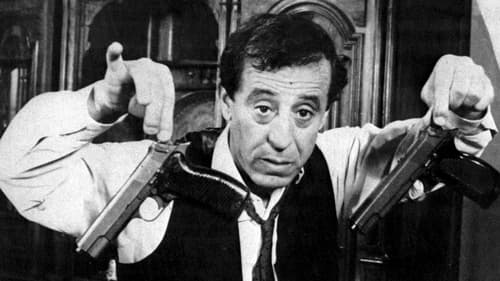
Cinematography
Directed by Mohammed Lakhdar-Hamina.

Writer
Directed by Mohammed Lakhdar-Hamina.

Director
Directed by Mohammed Lakhdar-Hamina.

Cinematography
A poetic essay. An Algerian soldier wanders through Algiers and the countryside, whilst a voiceover of the soldier's mother laments his death.

Writer
A poetic essay. An Algerian soldier wanders through Algiers and the countryside, whilst a voiceover of the soldier's mother laments his death.

Director
A poetic essay. An Algerian soldier wanders through Algiers and the countryside, whilst a voiceover of the soldier's mother laments his death.

Director
“Les Fusils De La Liberté” (1961) is a docu-fiction which recounts the difficulties overcome by an ALN detachment whose perilous mission is to transport weapons and ammunition from Tunisia across the Algerian Sahara during the Algerian liberation war (1954-1962) against the French army of occupation.

Director









